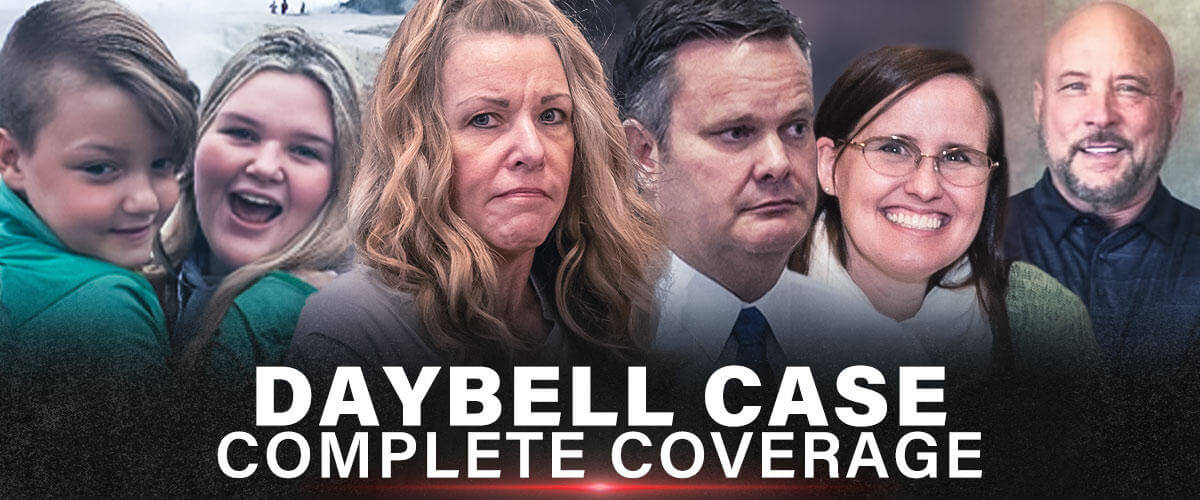Chad Daybell jurors speak about ‘heart-wrenching’ 2-month murder trial
Published at | Updated at
BOISE (KSL.com) — Nick, juror No. 9, described a moment of silence, a strange breath following the jury’s sentencing decision — death — for Chad Daybell, which came after a seven-week trial.
“It was the loudest silence I’ve ever heard,” he said. “The verdict paper was marked. This is it, we’re ready.”
The finality, the waves of anxiety and anticipation after 18 normal people were torn from their daily lives to sit in a courtroom for two months. All the while, many kept their day jobs, working nights and weekends, while taking in evidence about a slew of violent crimes and three murders presented in excruciating detail.
Seven out of 18 former jurors in the Daybell trial — that led to a guilty conviction on all counts and a sentence of the death penalty — spoke to Nate Eaton from KSL news partner East Idaho News, telling behind-the-scenes stories and reactions that led to the historic decision.
“We were dealing with the worst of humanity,” said Blake, juror No. 14. He grew emotional remembering the autopsy photos of the two murdered children and the victim impact statements read by family members. “The things that we saw and heard were absolutely horrific.”
On the day family members spoke about the loss of Tammy Daybell, 49, JJ Vallow, 7, and Tylee Ryan, 16, half of the jury was weeping in their seats. When they were dismissed for a break, Blake said they could be heard crying all the way down the hall.
“It was heartwrenching, and I couldn’t not cry,” said Daynna, juror No. 12. “I left the court, and I literally broke down.”
Each juror was convinced of Daybell’s guilt, but the evidence that pushed them over the top was different for each person. Some said it was the text messages sent between Daybell and Lori Vallow Daybell, outlining a “perfectly orchestrated plan” to get rid of whom prosecutors called “obstacles” so the two could be together. For others, it was the strange and dangerous religious beliefs the duo espoused.
Everyone was holding their breath to see what the defense would be, what kind of alternate explanation Daybell would offer.
“Where is it, where is it?” Blake asked. “I just kept waiting and waiting for some other piece of information that would at least cause you pause or make you think a little differently. They never showed that.”
The defense’s case, by most accounts, worked against them. Jurors said Chad Daybell’s children sounded “coached” and “robotic,” their testimony contradicted by rebuttal witnesses. Nick said he felt defense attorney John Prior was “trying to confuse us, get us off track.”
“I felt like there was anger and arrogance,” Blake said. “The defense did not ever paint a picture of any good, positive, moral behavior that went on from October 2018 through June 2020. None at all. I was frustrated.”
Just months before the trial, Prior requested to withdraw as Daybell’s counsel, saying he was not qualified to represent a client in a capital case. The “extraordinarily complex” case, he said, was too much work and complexity for him as a solo practitioner to undertake, and Daybell was unable to pay him for his services. That motion was denied.
In a capital trial, the defense is able to present mitigating factors during the sentencing phase to argue why the accused should not receive the death penalty. Daybell declined to present any mitigating evidence or to make any statements to the jury.
Jurors said they went around the room racking their brains to find anything positive that would justify them not recommending the death penalty. They came up empty handed.
Daybell, as is his right, also declined to testify on his own behalf during the trial before he was convicted on all counts, including first-degree murder for the death of his wife, Tammy Daybell, and the deaths of his new wife Lori Daybell’s children, JJ and Tylee. He was also found guilty of conspiracy to commit first-degree murder of each of the three victims, grand theft and two counts of insurance fraud.
“The defense had a hard job,” Nick said. “He did what he could with what he had.”
But it was an uphill battle from the start. The prosecution team was “phenomenal,” according to Blake, with no less praise given by others.
After the May 30 guilty verdict, the jury was then asked to determine whether Daybell should be sentenced to death.
That decision was handed to the bailiff June 1, and the same 12 who found the defendant guilty filed into the courtroom for the last time, in front of the packed pews of family and press — in view of the man who only they knew was about to receive the harshest punishment the state court allows.
“Throughout the trial, you could feel the eyes on you from the gallery,” Nick said. “But at that moment, it felt like nobody wasn’t looking at you.”
Steve, juror No. 10, locked eyes with Daybell, but said, “You were just looking at a shell.”
The decision was read, and all eyes turned to the accused.
“There was nothing,” Steve recalled. “There was no remorse.”
“It really hit me hard … to realize just how vile mankind is,” said Roy, juror No. 5. “It’s scary.”
But Blake said his biggest takeaway from the experience was “the goodness in people,” building a patchwork family with bailiffs and fellow jurors.
“Through the midst of these evil and horrific things that we were seeing and hearing,” he said, “there was a lot of good, too, that I’m only now able to process.”
Watch the full interviews on the East Idaho News YouTube channel.





